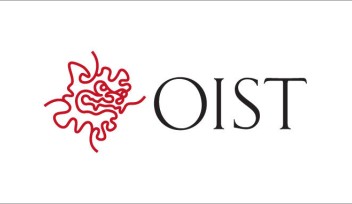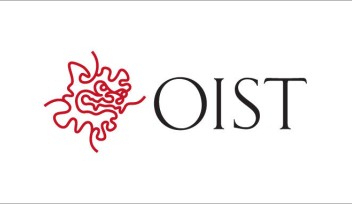Ten-Year Review Evaluates OIST’s Performance and Advises on Future Growth

This year marks a decade since the Okinawa Institute of Science and Technology Graduate School Corporate Act was first implemented and OIST was born with the mandate of becoming a world-class academic institution in Okinawa. As part of this milestone, an expert panel evaluated and provided advice to the national government of Japan regarding OIST’s future development.
“OIST is grateful to panel chair Dr. Masuo Aizawa and members of the panel for their efforts and leadership in addressing the complex issues involved in shaping the future direction of growth of the graduate university—as well as to the Cabinet Office staff for providing continuous assistance to the panel over the course of its work,” acknowledges Dr. Cherry Murray, OIST Board of Governors Chair, 2009 President of the American Physical Society and former Chair of the Division of Engineering and Physical Science of the National Research Council.
A pioneering university, OIST was established against a backdrop of weakening competitiveness in Japan in science and technology. OIST’s purpose was, and continues to be, to contribute to science and technology worldwide, to attract leading researchers from Japan and abroad, to advance the development of a world-class research hub, and to catalyze technology transfer and innovation in Okinawa.
OIST is pleased to note the panel’s conclusion that OIST has generally fulfilled its mission. OIST President Dr. Peter Gruss adds, “We particularly appreciate the recognition of our achievements in research results, and the panel’s comment that these achievements are internationally outstanding.” Analyses show OIST has already reached a level of international competitiveness greater than any other Japanese university and has a performance comparable to that of RIKEN, Japan’s largest comprehensive research institution renowned for high-quality research in a diverse range of scientific disciplines.
The panel’s report acknowledges the distinctive characteristics of OIST: its flexible approach to the pursuit of research themes across individual laboratories; its system of rotations for Ph.D. students to promote interdisciplinarity; and the global environment achieved through the recruitment of excellent students, faculty, and administrators from Japan and around the world. We are also grateful for the panel’s praise of our efforts to make the most of Okinawa’s characteristics and resources in pursuing research aimed at solving problems in Okinawa. At the same time, we appreciate there are areas in which OIST can evolve.
Contribution to Okinawa and Japan
OIST’s location in Okinawa is an essential part of its identity and we are committed to our responsibility to deliver benefits locally, nationally, and globally. We thank the panel for its commendation of our efforts in science education and exchange activities involving students in Okinawa, and in making the most of Okinawa’s characteristics and resources in our research.
At the same time, we take to heart the advice that OIST needs to root itself more deeply in the Okinawan community. It is a key part of OIST’s strategy to be the center of an innovation ecosystem that will bring transformative benefits to the economy and society of Okinawa. We are grateful for the understanding expressed by the panel that OIST cannot build this on its own.
Growth and expansion
The panel concluded that OIST’s scale needs to be expanded. OIST’s view from the outset has been that 300 faculty is an important target and that in order to maintain impetus, the university should target growth to 200 faculty by the early 2030s. We are grateful the panel undertook the analysis to determine the necessary scale for world-class research and education. The outcome of the panel’s analysis confirms that the target for growth envisioned by OIST’s founders remains valid.
OIST shares the panel’s belief that the quality of publications must not be sacrificed for quantity and is committed to the continuing pursuit of improvement in both. Growth is essential if this is to be possible.
The panel observed that the necessary scale for conducting world-class research and education must involve growth in research fields as well as the number of faculty members. We thank the panel for its support for the expansion of the university.
Evolution of governance
The panel concludes that, “an organizational structure suitable for the management of a university engaged in world-class education and research has indeed been put in place and is functioning properly.” It further states that it is important to identify which features of OIST’s organizational management can be used by other Japanese research universities.
We will review OIST’s governance arrangements in light of the panel’s comments to ensure that it remains effective as the university grows. It is important that any reforms to the governance of OIST are implemented in a way that is aligned with international standards, as previously articulated by the Cabinet Office.
Diversification of financial resources
OIST is deeply grateful for the support of the high-trust funding, stable public funding which has enabled it to achieve so much in ten years. The ‘high-trust funding’ model gives faculty the freedom to innovate, subject to rigorous external independent peer review of the results every five years. Our future still requires large financial investments in research facilities, equipment, and other resources to ensure we grow rapidly to remain competitive internationally to deliver more innovation, human talents, and impact.
We are grateful to the panel for its advice that the national government should continue to provide and maintain appropriate support for OIST. In addition, we acknowledge the need to develop independent funding and build a financial base. However, we are concerned that the implication could be drawn from the report that OIST can replicate in the short term the performance of universities operating in established economic, financial, and scientific metropoles. Further, the major sources for independent funding in the U.S. and Europe do not exist, or are much less developed, in Japan.
We are fully conscious of the great privilege we have been granted in the funding we have received from the Japanese government and people over our first decade and honored by the panel’s recognition that we have fulfilled our mission so far. We do not take this for granted.
We fear, however, lest the financial pressures of a post-COVID world should lead to decisions regarding the level of financial support to OIST that will put its future at risk. We wish to work with the government in the light of the recommendations of the report, and that of the Basic Direction of Review of New Okinawa Promotion Policies, to establish a shared understanding of what OIST can achieve, and over what timeline, without jeopardizing its ability to produce world-leading outcomes.
As OIST becomes more and more woven into the Japanese fabric of science and technology, the OIST model is already making significant contributions to Okinawa, Japan, and the rest of the world. We sincerely hope that the government of Japan and people of Okinawa continue to support our ambitious mission and to contribute to the advance of knowledge for the benefit of humanity.
For press enquiries:
Press Inquiry Form














